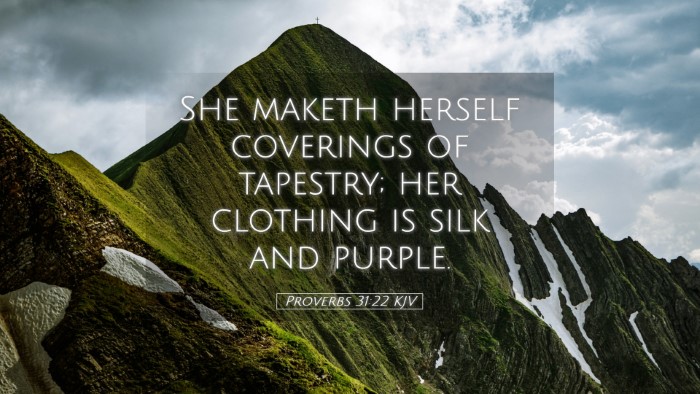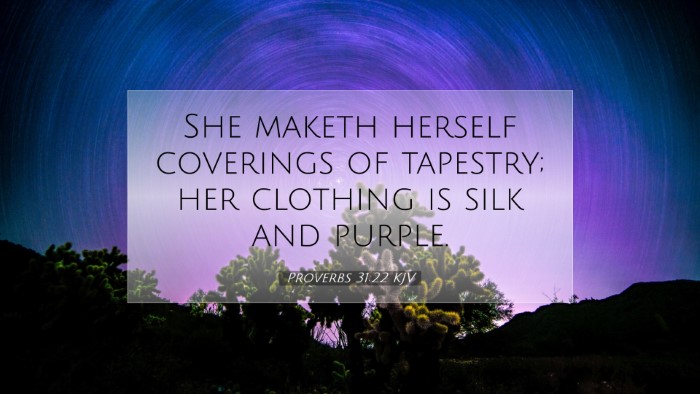Old Testament
Genesis Exodus Leviticus Numbers Deuteronomy Joshua Judges Ruth 1 Samuel 2 Samuel 1 Kings 2 Kings 1 Chronicles 2 Chronicles Ezra Nehemiah Esther Job Psalms Proverbs Ecclesiastes Song of Solomon Isaiah Jeremiah Lamentations Ezekiel Daniel Hosea Joel Amos Obadiah Jonah Micah Nahum Habakkuk Zephaniah Haggai Zechariah MalachiChapter
Proverbs 1 Proverbs 2 Proverbs 3 Proverbs 4 Proverbs 5 Proverbs 6 Proverbs 7 Proverbs 8 Proverbs 9 Proverbs 10 Proverbs 11 Proverbs 12 Proverbs 13 Proverbs 14 Proverbs 15 Proverbs 16 Proverbs 17 Proverbs 18 Proverbs 19 Proverbs 20 Proverbs 21 Proverbs 22 Proverbs 23 Proverbs 24 Proverbs 25 Proverbs 26 Proverbs 27 Proverbs 28 Proverbs 29 Proverbs 30 Proverbs 31Verse
Proverbs 31:1 Proverbs 31:2 Proverbs 31:3 Proverbs 31:4 Proverbs 31:5 Proverbs 31:6 Proverbs 31:7 Proverbs 31:8 Proverbs 31:9 Proverbs 31:10 Proverbs 31:11 Proverbs 31:12 Proverbs 31:13 Proverbs 31:14 Proverbs 31:15 Proverbs 31:16 Proverbs 31:17 Proverbs 31:18 Proverbs 31:19 Proverbs 31:20 Proverbs 31:21 Proverbs 31:22 Proverbs 31:23 Proverbs 31:24 Proverbs 31:25 Proverbs 31:26 Proverbs 31:27 Proverbs 31:28 Proverbs 31:29 Proverbs 31:30 Proverbs 31:31

